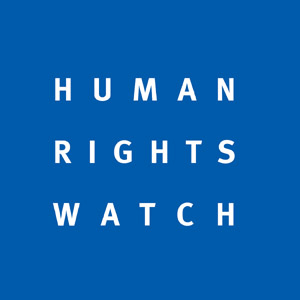KABUL where journalists self-censor their work to ward off threats from the government and security forces, an international rights group said on Wednesday.
Human Rights Watch (HRW) hailed the phenomenal media growth in the war-devastated country as one of the most significant achievements of the post-2001 reconstruction effort.
“But with most foreign military forces having withdrawn from Afghanistan and a substantial decline in foreign donor assistance, the freedom that spurred the media’s growth is in peril,” it said.
Afghan journalists faced increasing threats from insurgents and corrupt government officials, the New York-based rights watchdog said in a 48-page report titled “Stop Reporting or We’ll Kill Your Family,”
At least eight journalists were killed in Afghanistan last year — the deadliest year for the media since 2001. But perpetrators are rarely punished, showing a wider failure to establish the rule of law in the country.
Government officials, the Taliban and other insurgent groups used threats and violence to compel reporting they considered favourable, the report said, blasting judicial organs for letting assaults and murders go uninvestigated and unprosecuted.
“Afghan officials, warlords and insurgents have threatened, assaulted and killed dozens of journalists since 2002 without any fear of prosecution,” said Phelim Kine, deputy Asia director.
President Ashraf Ghani was urged to back-up his campaign promises to protect media freedom by bringing to justice anyone abusing journalists.
The media advocacy organisation Nai called 2014 the deadliest year on record for journalists in Afghanistan, with attacks up by 64 percent from 2013.
Human Rights Watch conducted more than 30 interviews with journalists, editors, publishers and media directors in Afghanistan. They indicated that they often respond to intimidation with self-censorship.
One journalist from Paktika province told HRW: “The governor asked me in the presence of everyone: Why have you reported on this (an attack on an Afghan security base?) … You have no right to report it. I will imprison you. Your life is nothing to me.’
It noted female journalists faced formidable challenges due to Social and cultural restrictions limiting their mobility and increasing their vulnerability to threats and attacks, including sexual violence.
“Reforming the law would be a vital step in ensuring that Afghan journalists can do their jobs,” Kine wrote. “But Afghanistan’s new government will need to address the security threats from all sides before journalists will have confidence that they can go to work without risking their lives.”
One Kabul-based news organisation had to seek police protection after gunmen reached its office after an investigation into unlawful seizure of land by powerful government officials.
Two commissions established under a 2009 law to protect journalists have yet to become functional, while a panel investigating alleged violations by media routinely probes complaints against members of the press.
Powerful individuals bypass the media violations commission, going to the attorney general’s office to seek legal action against journalists whose stories they do not like, according to the report.
mud
Visits: 0









GET IN TOUCH
NEWSLETTER
SUGGEST A STORY
PAJHWOK MOBILE APP